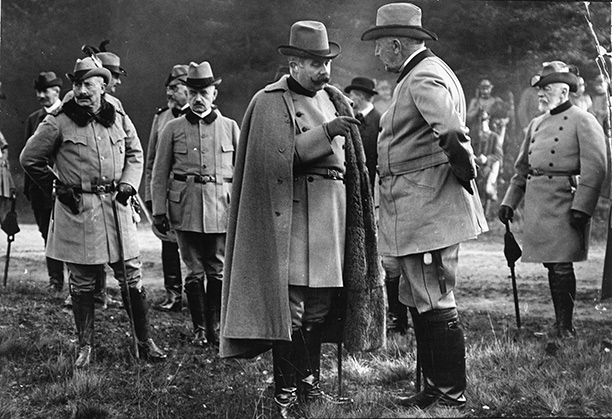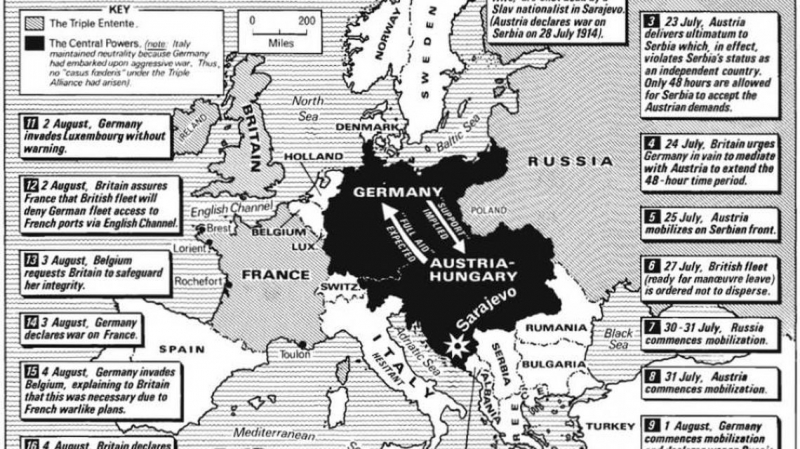July Crisis

The July Crisis refers to a sequence of diplomatic events that occurred in July 1914, following Archduke Franz Ferdinand's assassination. Following the killing and a debate in Vienna (29 June – 1 July), Austria-Hungary intended to strike back against Serbia, which it blamed for the assassination and knew was secretly encouraging Yugoslav nationalism on Austro–Hungarian soil. Austria-Hungary, on the other hand, was frightened of the much larger and more powerful Russian Empire, which was backing Serbia. As a result, it sought assurance from Germany, its own ally.
Germany offered a 'Blank Cheque' on July 6th, offering unconditional support for Austria-Hungary. Austria-Hungary issued a strict ultimatum to Serbia on July 23rd, demanding that Serbia cease all anti-Austrian propaganda within Serbia and enable Austria-Hungary to undertake its own inquiry into the Archduke's assassination. Serbia responded on July 25th, accepting all but one of the demands. Despite this, Austria-Hungary severed diplomatic ties with Serbia. The British offered a mediation conference the next day, but Germany and Austria-Hungary turned it down. Austria-Hungary declared war on Serbia two days later, on July 28th, 1914.











